In October, Sarah Monson learned that Facebook was changing its name to Meta and focusing on something called the Metaverse, an immersive virtual world that didn’t yet exist, but the company said it would one day take over. Internet. Monson, a 44-year-old business writer and mother who recently moved to Hawaii, found the news disturbing.
“I was like, oh my god, we’re all going to be dragged into this scary metaverse by Mark Zuckerberg, whether we like it or not, and have nothing to say,” she said in an interview. last week at NFT LA, a cryptocurrency conference in downtown Los Angeles.
Monson thought her 6-year-old daughter would encounter a version of the Metaverse in the future and she wanted to be prepared. She decided the best thing to do was to learn about the technologies that many Metaverse proponents believe would support it, including cryptocurrencies and NFTs, or non-fungible tokens.
“All I wanted to say was that I want to educate myself,” Monson said. She also didn’t want to miss what she felt was another major tech boom. “I lived in Seattle during the dot.com bubble and had no voice or power to do anything,” she said.
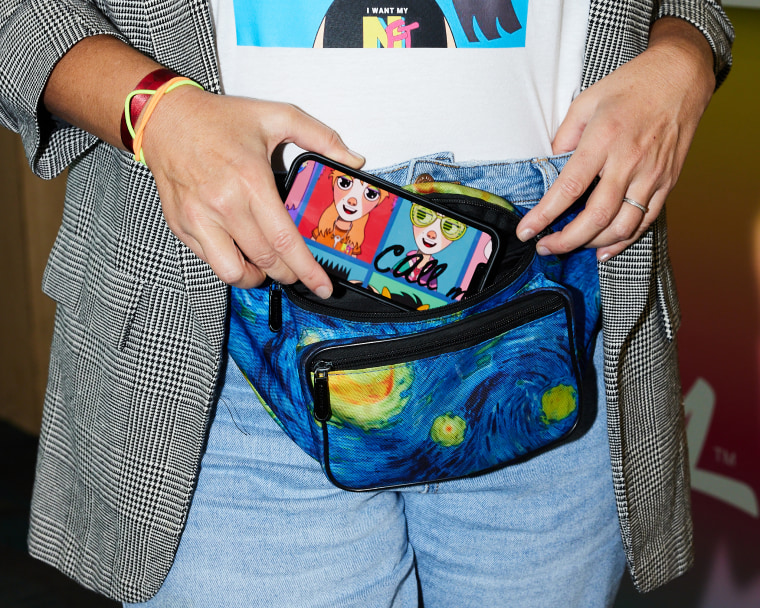
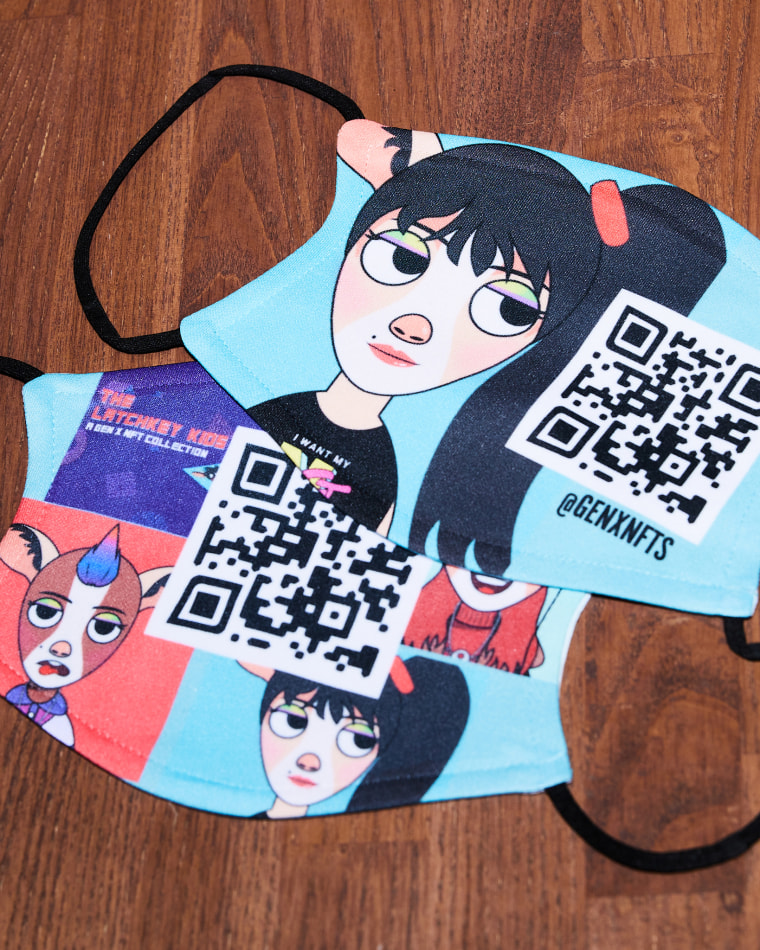
Monson started investing in crypto several years ago. But she’s spent the past five months diving headfirst into the market, listening to NFT podcasts, joining Discord servers and connecting with other mothers on Twitter. She is now set to launch her first NFT art collection, which she has dubbed The Latchkey Kids, a reference to members of her generation born in the 1970s and 1980s. On day two of NFT LA, she wore a mask facial and a t-shirt printed with the colorful cartoon goats she helped design for the project.
While young American males are more likely to say they’ve heard a lot about cryptocurrencies, a small but growing number of mothers, like Monson, are getting into the industry. For them, the stakes of investing in crypto may be higher. Most of the six mothers interviewed for this article said they hope crypto and NFTs will significantly change their family’s financial security for generations to come. They said they felt their perspective was different from that of the “crypto bros” often associated with the market.
“With more and more parents entering this space, we have a different mindset,” said Olayinka Odeniran, founder of the Black Women Blockchain Council, an organization that supports black women pursuing careers in the blockchain industries. blockchain and fintech, who has a 12-year-old daughter. “Our approach is different from that of single people who are just there to invest. We are here really because we want to leave something for our family and we want them to be able to participate in our space.
Odeniran and other mothers like her are a minority in the crypto industry. According to a Pew Research Center study published in November, only 13% of American women in their 30s and 40s say they have invested, traded or used cryptocurrencies, compared to 43% of men in their late teens and mid-teens. around twenty. Overall, twice as many men are investing in crypto as women, according to a CNBC survey.
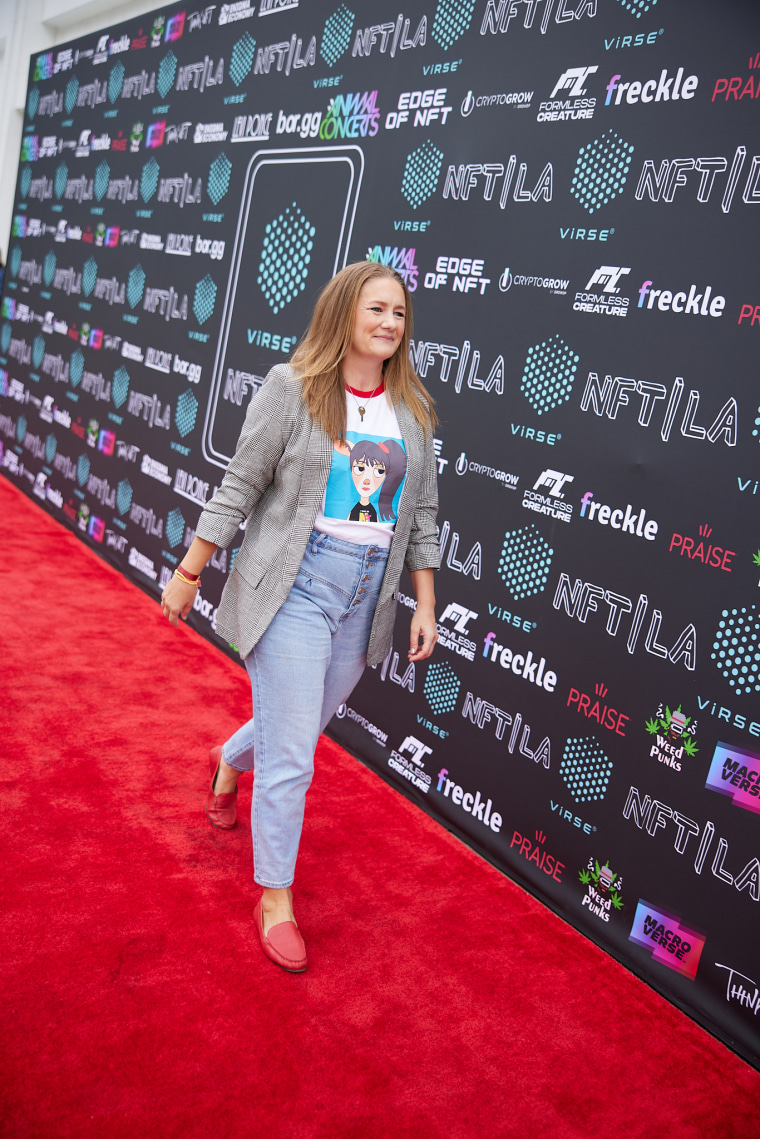
The lack of women is so pronounced that it is often the subject of jokes. During the talk Monson attended, comedian Kristin Key mused onstage that maybe NFT meant “no women today.” (The audience didn’t laugh.)
But now, in the midst of another bull market, a new wave of women-themed organizations have emerged that say they want to encourage more women to participate in crypto.
Deana Burke, mother of two children under 5 and co-founder of Boys Club, a crypto collective designed for women and non-binary people, said there was more excitement about enter the female industry only when she joined a few years ago. .
“I couldn’t get anyone to care,” Burke said. “But now there is this ambient curiosity.”
Maternal marking
One of the best-known “Crypto Moms” is Securities and Exchange Commissioner Hester Pierce. She has been given the nickname by members of the crypto community, who often see her as an ally for their industry. Pierce said she usually doesn’t mind being called a mother, even though she doesn’t actually have any biological children. But she also thinks her role shouldn’t be considered parenting.
“I think it’s kind of bad for a government official to be viewed in parental terms, because my philosophy of regulation is, look, this country is built on freedom and people make their own decisions,” she said. “I’m certainly old enough to be the mother of a lot of these cryptocurrencies, so from that perspective, it’s not too crazy either.”
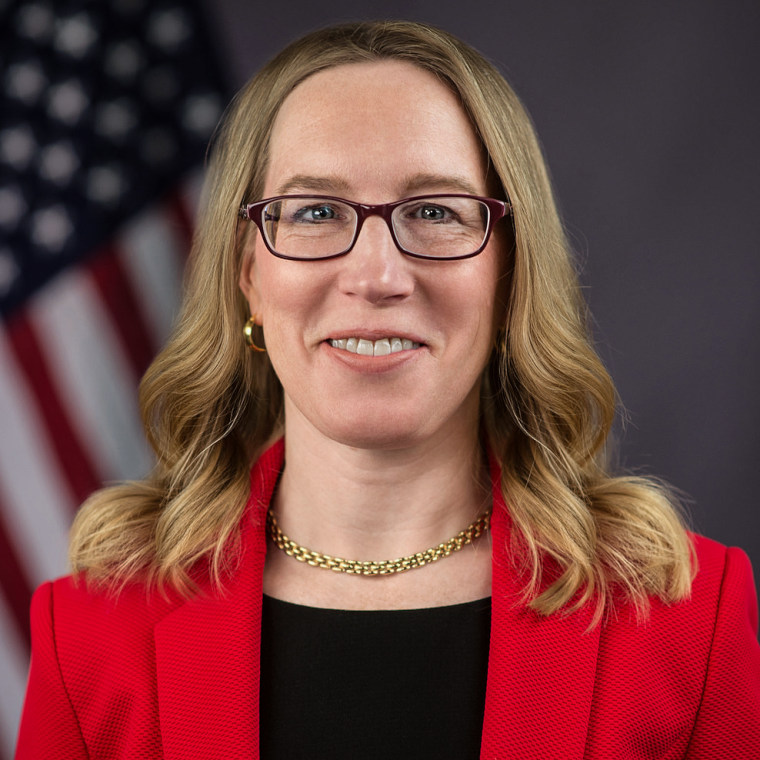
Pierce is not the only person qualified as a crypto mother. Brenda Gentry, a full-time San Antonio-based crypto trader, became known online as “MsCryptoMom.” Her slogan: “Mother knows best.”
Gentry, 46, grew up in Kenya and previously worked as a mortgage underwriter for USAA, a financial services company for US military members and veterans. She quit in October, after she and her husband calculated that their retirement accounts were worth around $400,000 or $500,000 if they continued to work for the next 20 years, about the same amount Gentry has. said he had already earned through crypto trading. Gentry said she was excited about the financial opportunities presented by crypto, but also aware of the risks involved.
“Sometimes I see these young people on Twitter say, ‘I’ve won so much on this NFT and I’m quitting my job,’ and I’m like, what?” Gentry said. “They forget that we have bad markets. You know, you have to think about that too.
Gentry said she protects herself by only investing in crypto projects that disclose the real names of the people behind them. She thinks space investment opportunities are more likely to be scams if run by anonymous founders.
“I wouldn’t invest money if I didn’t know the team. If I don’t know, if they’re anonymous, I’m leaving. The only anonymous one is Satoshi,” Gentry said, referring to the creator of bitcoin, whose true identity remains unknown.
Looking for opportunities
Brenda Cataldo, a real estate agent and mother of five living in Palm Bay, Florida, said she sees crypto as a rare chance to create wealth for her family and greater community.
“If I am able to earn money, I can help everyone around me. I don’t think that’s a bad thing,” she said. “If you don’t take care of yourself, how can you take care of anyone else?”
Cataldo has been investing in cryptocurrencies for a few years. But she started learning about NFTs on TikTok last fall. She is now preparing to launch her own NFT collection called Luxe Ladies, inspired by her mother, who immigrated to the United States from the Philippines. She said 20% of the proceeds will go to supporting foster children.
“I just think how lucky and blessed I was to have a mother who was such an advocate for me,” she said. “I want to give a little bit back to the kids who don’t have that.”
Other mothers interviewed also said they consider crypto as a way to raise money for charitable causes. Gentry said she and her husband had been running a non-profit organization supporting poor families in her native Kenya for years, but the extra money from cryptocurrency trading has made a major difference.
“When my parents returned to Kenya in January, instead of helping the 20 or 30 people we usually help, they were able to help 200 people,” she said. “So it’s not just generational wealth for my grandchildren, my children’s children that they haven’t even had yet, but it’s also for other other families.”
But Shailee Adinolfi, a mother and director of sales and strategic accounts at blockchain software company Consensys, warned that it’s currently not necessarily easy for people to transfer the money they earn from cryptocurrencies. currencies to their family or other organizations.
“What if you want to pass the crypto on to your kids? There are no shared accounts,” she said. “We need to think about all kinds of people and how they interact with systems, not just develop them for the same group of people who usually code.”
Monson said she wanted to convince more mothers like her to get involved with NFT art collections. But she said many of them are worried about the environmental impact of bitcoin and the amount of electricity it uses.
Burke noted that there are a number of new blockchain technologies already in use that are designed to consume fewer resources. She said there are a lot of people in crypto who want to address environmental damage, rather than contributing to it.
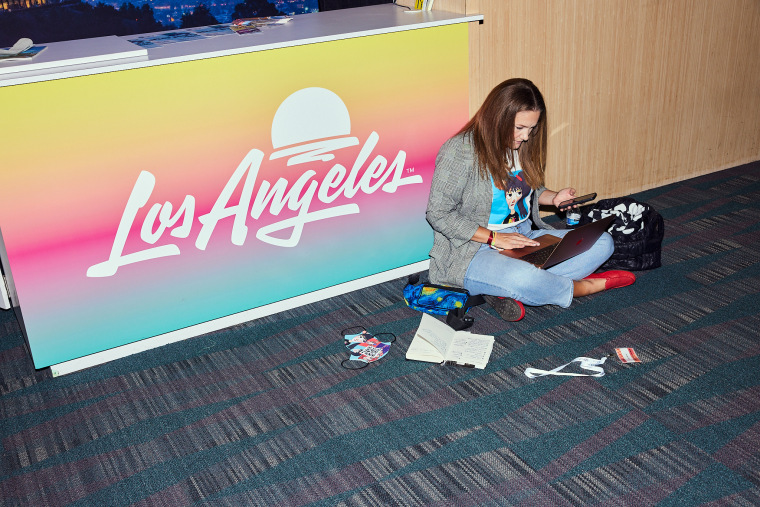
“The world I’m a part of in web3 and crypto is very, very, very climate-conscious and actively working to improve the situation,” she said.
Monson said she hopes the industry continues to evolve. For now, she plans to continue exploring what the world of crypto could mean for her and her family’s future.
“I love my job and I love what I do, but I’m more than just a mom, and I feel like so many other moms, we need more,” she said. “It’s an exciting new life change.”


